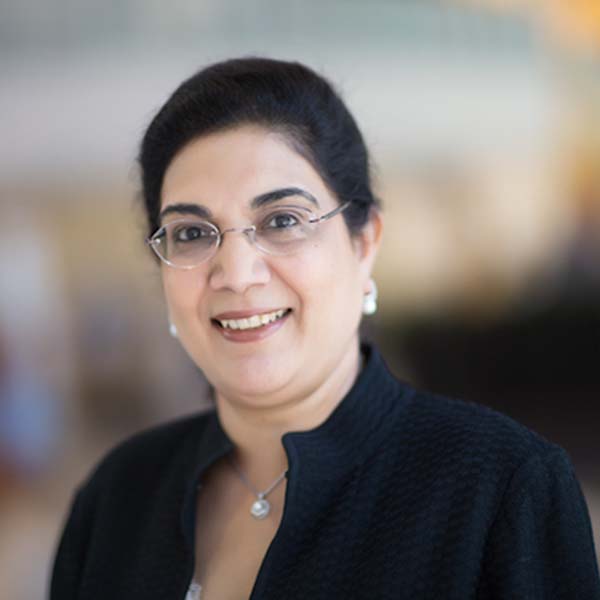Dr. Arti Pandya is a multiple award winning Chief of Genetics and Metabolism at UNC of multiple publications. She is currently attending physician for Outpatient-Medical and Metabolic Genetic Clinics and Inpatient Consultant for General Genetics and Metabolic Service at the UNC School of Medicine, where is also co-course director for Genetics. Dr. Pandya is also board certified in Clinical Molecular Genetics, Clinical Genetics and Pediatrics. With a longstanding interest in understanding the genetics of hearing loss, she has pursued this passion throughout her career by analyzing families for novel mutations in the PAX-3 gene, and for the possibility of a modifier gene as an explanation for the non- penetrance of hearing loss (HL) and identifying novel genes for HL through traditional linkage analysis and was successful in establishing a large DNA repository of deaf probands. Molecular studies on samples from the repository have contributed to our understanding of the molecular epidemiology of GJB2 (Connexin) and mitochondrial deafness in the United States, and has shed some light on the genetics of unilateral, progressive and high frequency HL. She has also been interested in understanding the ethical and social impact of advances in the molecular etiology of HL on the deaf community and has explored this sensitive but important aspect through her long standing collaboration with Gallaudet. In the past few years, Dr. Pandya has worked on assessing the contribution of congenital cytomegalovirus infection to late onset pre-lingual HL and conducted a pilot study to screen all newborns born at VCU for CMV viremia. Through recent collaborations, she is focusing on establishing the feasibility of testing all newborns for a panel of HL genes using Next generation sequencing technology to help identify the etiology of HL.
Dr. Pandya has been an active and invited participant for drafting the American College of Medical Genetics guidelines for evaluation of a child with HL which has been adopted as the standard of care by physicians caring for individuals with HL and was also involved with the VA Early Hearing Detection and Intervention committee at the state level that oversees the implementation and follow up for the newborn audio logic screening for all newborns in VA. In recent years, she has been excited about the use of next generation sequence techniques including whole exome sequencing to identify additional genes implicated in hearing loss and other related disorders and is anticipating applying it to further focus on her research. Her goal is to set up collaborations with faculty in Otolaryngology and Audiology to submit for extramural funding in the immediate future, to further this research in the field of genetic hearing loss.
At the Virginia Commonwealth University, Dr. Pandya was involved with didactic teaching of medical, dental, genetic counseling, and dietetic students. As an attending physician in Pediatrics, She had the opportunity to train and teach residents in pediatrics and pathology. She served as the training and program director for RRC and ABMG accredited genetic fellowship programs, which gave an opportunity to train postgraduate trainees in medical genetics, cytogenetics, clinical molecular genetics and molecular pathology. She was also course director for masters and PhD students in genetics and has served on the thesis committee, as well as trained postdoctoral fellows in the laboratory. Dr. Pandya has also been equally involved in one-on- one clinical teaching during outpatient clinics, and as the attending for inpatient genetic consults, state metabolic service and the general pediatric floors.
At the national level, she has been an active member of the Association of Professors in Human Genetics and was a participant member for the committee which is setting the milestones for the laboratory training fellowships to follow in line with milestones set for the clinical fellowship training in genetics. Dr. Pandya has served on a panel through the American Board of Medical Genetics and Genomics to select the reading material for MOC training for the clinical molecular tract, and as a mentor for trainees in the field of genetics at the American Society of Human Genetic Meetings. A physician at heart, Dr. Pandya derives immense satisfaction from being able to help children and adults with inherited disorders. She believes that one of the advantages of being a geneticist is the ability to provide care from prenatal stages into adulthood, which allows her to follow the natural history of a disorder.
